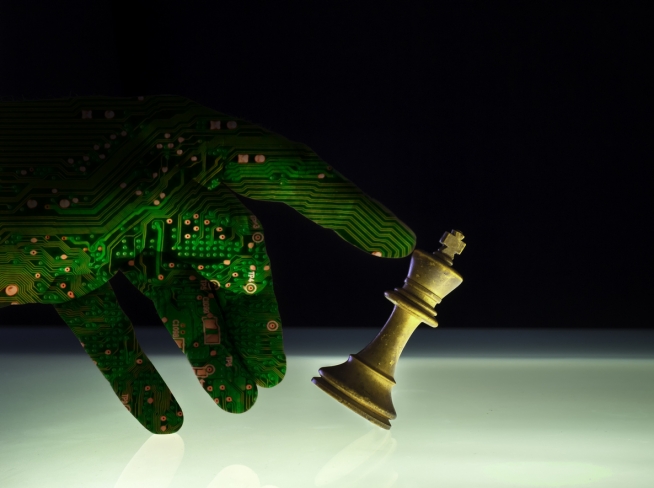
Luxembourg’s Prime Minister: Leaders need to factor in technology’s effects on national policies
Following Donald Trump’s surprise victory in the U.S. Presidential elections, many reports have surfaced attributing social media for the upset win, highlighting how Facebook and Twitter trends had pointed to Trump’s election leading up to November 8th. The Wall Street Journal, citing numbers from analytics firm 4C Insights, described how Trump’s lead in social media engagements – 57.9 million from October 1 to November 7 compared to Hillary Clinton’s 47.7 million – would have been a better predictor than the numerous polls that had Clinton comfortably ahead.
Some have pointed to fake news circulated on social media that had gone viral as an engine that galvanised Trump supporters. Facebook founder Mark Zuckerberg slammed that idea as “crazy” but the millions of shares verifiably false stories garner suggests otherwise. Just days after Trump became President-elect, Paul Horner, a fake news writer whose story about protesters at Trump rally being paid to do so was re-tweeted by former Trump campaign manager Corey Lewandowski, claimed to have helped the property developer clinch victory.
“Anyone with a mobile phone has the opportunity to retweet, like, share, post, or comment; the public is your jury,” says Xavier Bettel, Prime Minister of Luxembourg at a recent SMU Presidential Distinguished Lecture Series talk titled “Political Leadership in the Digital Age”. “Everybody with a mobile phone has the possibility of communicating and sharing, and also to promote someone and help win elections, or to destroy someone.
“Sometimes you read comments on Facebook and see where people got their information, it is important to educate especially the younger generation to tell the difference between what they read and reality. This is new, we never had this problem in the past 30 or 40 years.”
Managing change
Besides becoming a potentially decisive factor in the democratic process, Prime Minister Bettel also believes digital technology to have major impact on social institutions.
“Will the Uber driver be able to think about his pension?” he asks. “I have no problem with Uber personally, but it is important for the guy who uses Uber as a profession to know he needs to pay taxes and social insurance, and he needs to think about his pension. Otherwise, in 20 to 30 years you’ll have people without social insurance and pensions. Social questions must not be forgotten.
“We need to actively structure the future without interfering unnecessarily. We want to push innovation where it is needed but at the same time managing the tradeoffs. If we do our job correctly we don’t have to be afraid of innovation and its consequences.”
The Prime Minister gave the example of Société Européenne des Satellites, better known as SES, the world’s largest communications satellite company. SES was created in 1985 on the initiative of the Luxembourg government despite challenges from better-funded competition. Through innovation and dogged determination, SES has become synonymous with satellite communications, so much so that the Prime Minister quips, “My country is not that big on the ground but it is much bigger in space.” Luxembourg, says the Prime Minister, is now looking at asteroid mining as an example of forward thinking.
Despite the success of SES, Luxembourg’s economy is heavily reliant on its renowned finance and banking sector. In 2009, the government moved to modify its much-vaunted banking secrecy laws to stem allegations of the country being a destination for tax evaders, highlighting the importance of the industry to Luxembourg. But with Fintech now disrupting the banking business, should Luxembourg be worried about its economy at large?
“No,” states the Prime Minister emphatically, “because you still need the legal framework, the trust between institutions, the infrastructure for data, and the data is the backbone of the future. You need trust in the competence of the people handling the data, and we are one of the few countries where that trust and competence is reality.
“I remember when people said Luxembourg’s banking sector would collapse with requirements to give up secrecy. But we survived. Instead of thinking about how well we’ve done the past 10 years, we thought about what we needed to do for tomorrow. I’m really not scared about the future in this space.”
Waiting on Trump
In a Q&A session after his lecture, Prime Minister Bettel was asked about the future of Russian-American relations.
“With regard to Russia, we are in a simple relationship: it’s sanction, reaction; sanction, reaction; sanction, reaction,” he quips, referring to Europe’s dynamic with Moscow. “We are constantly trying to avoid escalation because it’s a no-win situation if Russia collapses, and Europe’s economy is hurting too.
“I don’t think we’ll see the Cold War again. For now I cannot tell you what President-elect Trump will do, so we’ll wait to see his programmes and the make-up of his cabinet. As for President Putin, I’ve had a long discussion with him. I don’t believe we can find solutions without talking to people.
“The problem with politics is we often speak about others instead to each other. We have the Minsk agreement for the moment, and it’s the only thing we have. In the meantime we wait for President-elect Trump.”
Follow us on Twitter (@sgsmuperspectiv) or like us on Facebook (https://www.facebook.com/PerspectivesAtSMU)
Last updated on 27 Oct 2017 .